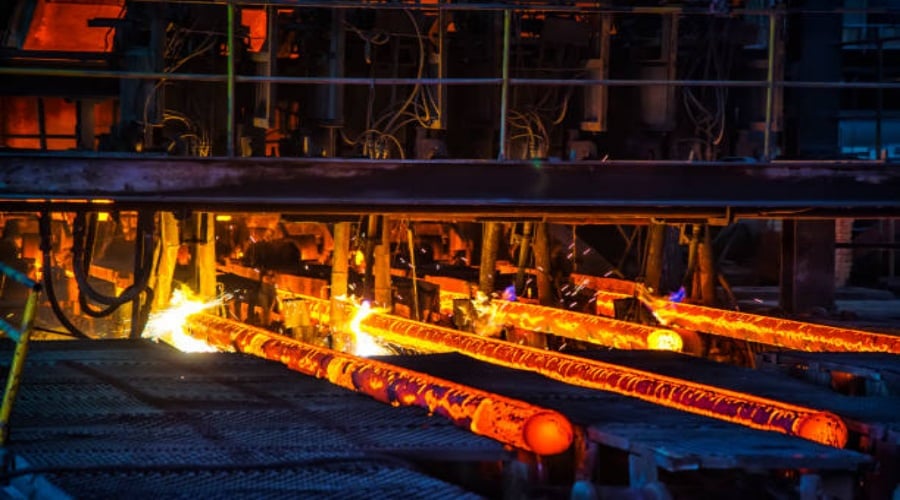Introduction: The Role of Rebar Rolling Mills in Construction
Rebar rolling mills play a crucial role in the construction industry, providing high-quality reinforcement bars that are essential for reinforcing concrete structures. These mills are designed to efficiently and precisely shape steel billets into rebars of various sizes and specifications. In this article, we will explore the many benefits of using a rebar rolling mill in construction projects, highlighting its impact on efficiency, quality, and cost-effectiveness.
Enhancing Efficiency: Streamlining the Production Process
One of the primary advantages of a rebar rolling mill is its ability to streamline the production process. With advanced automation systems and innovative technologies, these mills can quickly and accurately transform steel billets into finished rebars. By eliminating manual interventions and minimizing human error, rebar rolling mills significantly enhance production efficiency, allowing for higher output rates and shorter lead times.
Improving Quality: Consistent and Reliable Reinforcement Bars
Quality is of utmost importance in construction, and rebar rolling mills play a crucial role in ensuring that reinforcement bars meet the required standards. These mills utilize precision rolling techniques to produce rebars with consistent dimensions, mechanical properties, and surface quality. By eliminating variability and defects, rebar rolling mills provide construction professionals with reliable and durable reinforcement bars that meet the strictest quality requirements.
Cost-Effectiveness: Lowering Production Costs
Investing in a rebar rolling mill can yield significant cost savings for construction companies. By producing rebars in-house, companies can reduce their reliance on external suppliers and transportation costs. Additionally, the efficient production process of rebar rolling mills minimizes material waste, further reducing production costs. Over time, these cost savings can have a substantial impact on the overall profitability of construction projects.
Flexibility: Meeting Diverse Project Requirements
Rebar rolling mills offer great flexibility in meeting the diverse requirements of construction projects. These mills can produce rebars of various sizes, shapes, and grades, allowing construction professionals to choose the most suitable reinforcement bars for different structural elements. The ability to customize rebars according to project specifications enhances the overall performance and structural integrity of the construction project.
Environmental Sustainability: Reducing Carbon Footprint
As the construction industry increasingly focuses on sustainability, rebar rolling mills play a vital role in reducing the carbon footprint of construction projects. By optimizing energy consumption and minimizing waste, these mills contribute to a greener and more environmentally friendly construction process. The efficient use of resources and the production of high-quality, long-lasting reinforcement bars help in creating sustainable and resilient structures.
Reliability: Ensuring Structural Safety
Structural safety is paramount in construction, and the use of reliable reinforcement bars is essential for ensuring the integrity of buildings and infrastructure. Rebar rolling mills produce rebars that undergo rigorous testing and inspections to ensure compliance with industry standards and regulations. The consistent quality and strength of these reinforcement bars provide construction professionals with the confidence that their structures will withstand the test of time and external forces.
Durability: Longevity of Reinforced Structures
The longevity of reinforced structures heavily relies on the durability of the reinforcement bars used. Rebar rolling mills produce high-quality rebars that are resistant to corrosion, fatigue, and other forms of degradation. By utilizing advanced rolling techniques and appropriate steel grades, these mills ensure that the reinforcement bars have the necessary strength and resilience to withstand harsh environmental conditions, prolonging the lifespan of the structures they reinforce.
Technological Advancements: Innovations in Rebar Rolling Mills
Over the years, rebar rolling mills have witnessed significant technological advancements. These advancements have led to the development of more efficient and versatile mills, capable of producing high-quality rebars with greater precision and speed. From sophisticated automation systems to advanced cooling technologies, these innovations have further enhanced the efficiency, quality, and sustainability of rebar rolling mills.
Conclusion: Harnessing the Power of Rebar Rolling Mills
Rebar rolling mills are undoubtedly a game-changer in the construction industry. Their ability to enhance efficiency, improve quality, and reduce costs make them an indispensable asset for construction companies. By investing in a rebar rolling mill, construction professionals can ensure the availability of high-quality reinforcement bars that meet the specific requirements of their projects. As the industry continues to evolve, rebar rolling mills will continue to play a vital role in shaping the future of construction.

